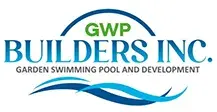Embarking on a pool development project requires more than just aesthetic design; it necessitates a stringent adherence to compliance and safety standards to ensure that your new pool is both secure and functional. This article explores the essential regulations and best practices in pool development, guiding you through the complexities of legal requirements, safety protocols, and quality controls. Whether you are installing a new pool or upgrading an existing one, understanding these aspects is crucial to creating a safe aquatic environment that meets all regulatory standards and provides peace of mind for homeowners and facility operators alike.
Navigating Zoning Laws and Regulations in Pool Development’s
Understanding local zoning laws and regulations is a critical first step in any pool development project. Before you begin designing your pool, check with your local building department to determine the specific requirements and restrictions for pool construction in your area. This may include rules about pool size, depth, fencing, and proximity to other structures. Ensuring your design complies with these laws not only avoids costly legal issues but also ensures the safety of pool users. It’s a good idea to work with a qualified contractor who is familiar with local regulations and can help guide you through the permitting process, making sure your pool meets all necessary legal standards.
Incorporating Safety Features into Pool Development’s Projects
Safety is paramount in pool development. As you plan your pool, consider essential safety features such as non-slip surfaces, adequate fencing, and self-closing, self-latching gates to prevent unsupervised access by children. Alarms and pool covers can provide additional layers of protection. For those with children, shallow areas or safety ledges are critical. It’s also wise to design clear visibility from the house or other common areas to the pool. By integrating these safety mechanisms from the outset, you not only comply with many legal requirements but also create a safer environment for family and friends to enjoy the pool without undue risk.
Regular Maintenance and Inspections for Pool Development Compliance
Regular maintenance and periodic inspections are crucial for maintaining compliance and ensuring the long-term safety and functionality of your pool development. Establish a routine schedule to check and clean filters, pumps, and other mechanical systems to keep them running efficiently. Regularly test water quality to ensure proper chemical balance and hygiene. It’s also advisable to have a professional inspect your pool annually to identify and repair potential issues like cracks or leaks before they become major problems. Keeping up with maintenance not only extends the life of your pool but also ensures it remains a safe and enjoyable place for everyone.
